I need help with Anger Management / Distraction / ADD / Overwhelming Emotions…(strike out what does not apply) …can you recommend any self help books for expats to read?
Clients are often asking me for book recommendations. While self help books for expats aren’t the same as therapy or coaching sessions, they have their place and can sometimes be useful if reading is your thing. If you aren’t quite ready to attend counselling or want to try some things for yourself first, take a look at the categories below and try some of these titles. That’s also an inexpensive alternative. But don’t leave it too late to ask for human help. Often it is easier to recover when frustration or other emotions are not so overwhelming.
Here I’ve collected a few of the titles I’ve found to be useful and effective for dealing with anger, distraction, anxiety and out-of-control emotions. Some of these self help books for expats were recommended to me by English-speakers who have come to live in Sweden. Others I discovered myself in the course of professional development.
(Commissions may be earned on purchases of linked products)
Anxiety, Concentration, ADD and Mindlessness
Researching your condition on the Internet can hazardous! On many occasions I’ve been contacted by expats or other English-speakers who, after surfing around the net, fear they have ‘Adult ADD‘ (aka Attention Deficit Disorder). They talk of being easily distracted, having difficulty staying on task or constant forgetfulness. But neither ADD nor ADHD suddenly begin in adulthood. Unless you had serious problems with your schooling as a child, it’s more likely you are suffering from something associated with anxious states of mind or you just need to tone up your mindfulness.
Books for Improving Concentration and Attention (especially if you are worried about ADD or ADHD)
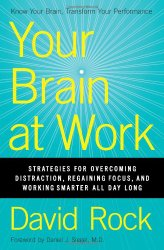
Your Brain at Work: Strategies for Overcoming Distraction, Regaining Focus, and Working Smarter All Day Long by David Rock.
This book provides, in simple terms, an in depth understanding of how the brain works and how to optimize use of your brain. Rock also discusses how and why the brain gets overwhelmed. If you are interested in getting a scientific understanding that can help you get back in control of your brain, this book could be helpful to you.
We live in a world with ever increasing distractions thanks to the Internet and technological revolution it has brought. This is no less true in Sweden than elsewhere. Modern communication seems to demand we are more accessible. Increasingly we find our attention divided between tasks. Rock exposes the effect of these demands on the brain. This is cognitive neuroscience, fairly detailed stuff, but explained in conjunction with practical tips.
Regaining Focus and Balance through the Strategy of Mindfulness
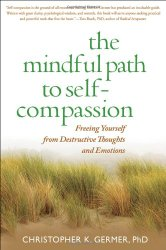
The Mindful Path to Self-Compassion: Freeing Yourself from Destructive Thoughts and Emotions by Christopher Germer.
Many of us are in jobs that require us to use our intellect all day long. For some, the best way to tackle an overwhelmed mind is not by using our intellect to understand the science of the brain but to live more in the present. That starts with being kind to ourselves and also means listening to the body and allowing it to tell us what it is experiencing and what it needs. When we spend most of the day in our heads, we can lose touch with the rest of our body. Mindfulness involves strategies that can be learned. This book will assist you get back to the present and find a new balance.
Germer’s book is an easier read than Rock’s, and his approach is different. It’s less about understanding neuroscience and more about connecting with and awareness of sensations and emotions. If you see yourself more as a ‘feeling’ type of person than a ‘thinking’ type of person, this is probably the better book for you.
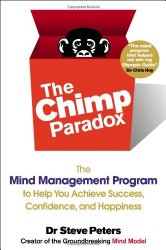
The Chimp Paradox: The Mind Management Programme for Confidence, Success and Happiness by Dr Steve Peters.
The Chimp Paradox is really about managing emotions (a product of our inner ‘chimp’) and using reasoning (our ‘human’ quality). Peters is a psychiatrist who specialises in sports performance and he is concerned with helping people to understand and manage their emotions and thoughts. This is quite a quirky book that lies somewhere between the drier science of Your Brain at Work and the warm, feel-good The Mindful-Path. Peters teaching skills are clear: the book is full of diagrams and metaphors. His models are easy to understand and fun to read.
If you like the idea of being coached, and you are ready to take up a new perspective on your performance, The Chimp Paradox might be one of the best self help books for expats. It has been described as a ‘mind programme’, so be prepared to start reprogramming the way you respond to your emotions!
Self Help Books for Expats for Developing Calmness and Responding to Anger
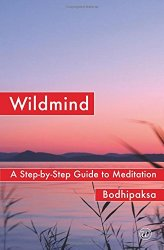
Wildmind: A Step by Step Guide to Meditation by Bodhipaksa
People often ask me if I do ‘Anger Management’. Well the first step in managing Anger is awareness of it and the emotions which precede it. Meditation provides one of the best ways to develop awareness of emotions. Despite what some people say, anyone can learn to meditate. It doesn’t involve ‘blocking out thoughts’ as such but the practice of focussing. If you are willing to try focussing according to a set procedure, you will find that you are meditating.
I’ve had the pleasure and good fortune to have met Bodhipaksa (a Scotsman and veterinary science graduate formerly named Graeme Stephen) and can vouch he is a very decent chap! He has been practising meditation for over 20 years and teaching for over 10 years. This is one of the simplest and easiest to follow step-by-step guides to meditation by an excellent teacher. It will tell you how to do the fundamental practices that help develop calmness and positive mental states towards others. These are proven techniques to respond to and reduce the influence of Anger and other emotions.
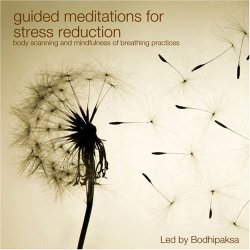
Guided Meditations for Stress Reduction also by Bodhipaksa
This isn’t actually a book but a set of guided meditations on CD. There is also an audio-book version if you prefer that. So if you aren’t much into reading and prefer listening to a voice guiding you, you can use these audio tracks to help reduce your stress response.
Our thoughts affect our bodies both in terms of the sensations we feel and the emotions we experience. And what we feel in turn affects our thoughts. This cycling can leave us in a state of hyper-arousal or acute stress response (aka ‘fight-flight-freeze’). Focussed awareness can reverse this and bring us back to the present-moment experience. If you are struggling with stress, guided meditation could be a way forward for you. Try the CD and consult myself or a meditation teacher if you continue to experience difficulties.
CBT Self Help Books For Expats
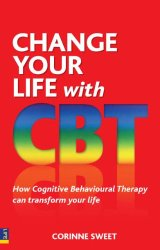
Change Your Life with CBT by Corinne Sweet
CBT means Cognitive Behaviour Therapy and it is ‘flavour of the month’ in Sweden right now. It’s not particularly new, having it’s roots in the 1950s and rising to prominence in the 80s and 90s, and is regarded as a ‘2nd wave’ therapy (we’ve experienced 2 more ‘waves’ since!). But psychoanalysis used to be the only talk therapy with credibility in Sweden and CBT is quite easy to justify through research evidence so more people have heard of CBT than Narrative Therapy. That’s not to say Cognitive Behaviour Therapy isn’t effective, because for many people it is. To an extent, CBT is also very favourable to self-help so there are a lot of books on the market to choose from.
I picked up Corinne Sweet’s book a few years ago on my way back to Sweden at the bookstore at Gatwick Airport. It is basic but I think it is one of the most accessible and easy to read texts on CBT. If you are suffering from mild anxiety, ‘catastrophising’ or various negative thoughts, this is a great starter for you to find out how to reduce fear and develop more happiness.
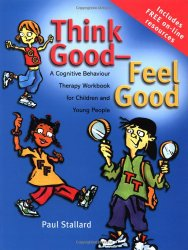
Think Good – Feel Good: A Cognitive Behaviour Therapy Workbook for Children and Young People by Paul Stallard.
I don’t work with children these days but a colleague showed me her copy of this book and I’m not surprised that it is a best-seller. There’s not much around in terms of CBT workbooks for children and this book also provides very helpful guidance to parents and clinicians. I’ve had parents contact me to ask if I will work in English with their kids. I usually send them to a child specialist because I am an adult specialist. If the CBT model interests you, I’d recommend getting a copy of this workbook, reading it yourself and then using it with your children. Sure it costs a bit more than the average book, but it is packed full of helpful activities and will provide you with an excellent grounding in CBT if you decide to see a therapist or counsellor in person. Obviously, if the difficulties are very serious or urgent, it is always best to seek help from a practitioner as soon as possible. In that case, get in touch with a ‘BUP’ (child and youth psychiatry) clinic directly or through a GP at Vårdcentalen.
One last suggestion… This summer, get yourself an Amazon Kindle. Okay, I admit it I am biased. I am a Kindle convert! But it is so much easier than travelling with a stack of books. You can read all of these self help books for expats on Kindle plus novels or other non-fiction books as well and the latest version even works in bed with the lights out! If you don’t have one already you can buy a Kindle at this link.

I hope to post again with some more book recommendations for inspiration, motivation and commencing a new life in Sweden. Just send me an email if you would like to be informed of new articles. I’m also available for consultations online over Skype webcam, by phone or email exchange. In the meantime, happy summer reading!
*As an Amazon Associate, I earn from qualifying purchases.

